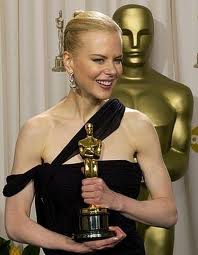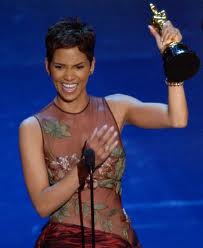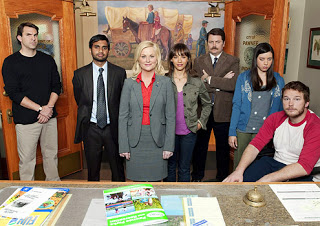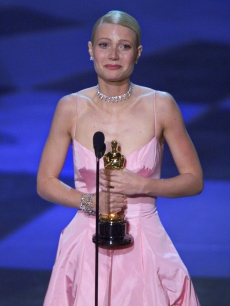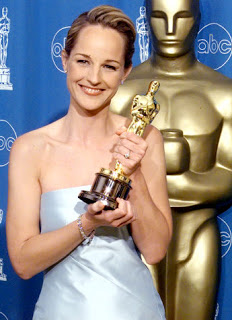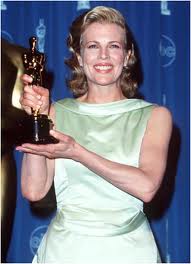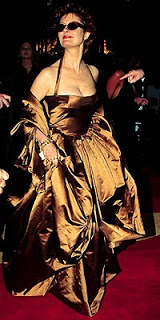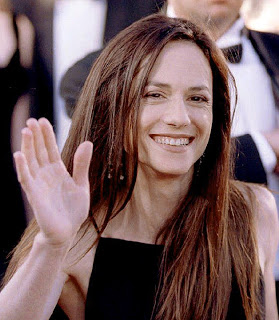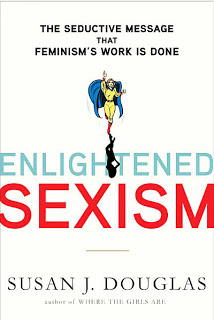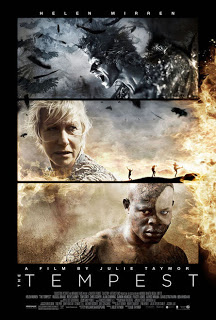We’ve all seen the business signs with their unintentionally humorous misspellings, typos, and improper use of that dreaded apostrophe. You don’t, however, need to be a grammar nerd to understand the significance of a single apostrophe in
The No. 1 Ladies’ Detective Agency. It signals that our main character knows something about autonomy, naming, and owning her work as a new detective–as Botswana’s only female detective, in fact. There is a moment, early in the two-hour pilot episode, when viewers must know the episodes to come will be smart, feminist, and funny. Watch this clip, which introduces the show’s cast and Precious Ramotswe’s (played by singer and actress
Jill Scott) efforts at naming:
Her fix–painting in the apostrophe–and the group’s reciting of the new name of the business (“The number one ladies apostrophe detective agency!”) tells viewers that this new enterprise isn’t merely an agency of ladies, or for ladies, but that the women of the agency are the agency. You also can’t miss the bit of humor in there–that this detective agency isn’t number one because it’s necessarily the best, but because it’s the first, and only, woman-owned detective agency in Botswana.
This may seem like a lot of attention to a very small point in the show, but it sets a light and funny tone with an undercurrent of seriousness and thoughtfulness for the rest of the series.
In terms of basic plot structure, there isn’t a lot of groundbreaking material here: each episode brings a series of mysteries that Mme Ramotswe and her quirky secretary and assistant, Grace Makutsi (played by Tony-Award-winning actress
Anika Noni Rose), use clues, intellect, intuition, and good, old-fashioned pluck to solve. However, unlike most detective shows out there, the women don’t rely on any high-tech crime-fighting devices, and the show’s deployment of justice typically doesn’t involve police, brutality, and/or imprisonment.
This point is, in fact, the most significant deviation from standard whodunit material: the show’s definition of justice just might be a model for what feminist justice looks like. Rather than throwing criminals in the slammer, the women of the show are interested in righting wrongs, in bringing people in broken relationships together to resolve their problems, and, most of all, in revealing truth to those in search of it. In other words, justice without all the violence, vengeance, and sick pleasure of domination. While some of the crimes are more serious than others in the show, the resolutions genuinely address the crime committed.
The show’s setting–and location of its filming–in Gaborone, Botswana cannot be glossed over. Not only is the setting beautiful, not only does it lend authenticity to the show and its characters, but it allows us a window on a society different from the United States (and Britain, where the show originally aired)–but also shows the way we struggle with the same kinds of things. While the show maintains a tone of lightness and comedy throughout, there isn’t an episode that doesn’t nod to a serious topic: Grace cares for her brother, who suffers from AIDS; there are no shortage of orphaned children hanging about; there is constant struggle between tradition and modernity, rural and urban values; Precious struggles with a former abusive relationship; and so on. Western audiences rarely see depictions of African countries that don’t center around war, illness, and extreme poverty. While I would never argue that No. 1 Ladies’ is a flawless series, it’s pretty damn good and definitely worth your time.
